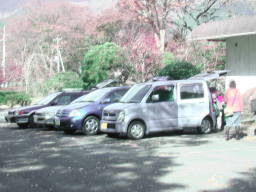
We would like to offer our sincere sympathy to the people affected by the typhoon "Hagibis".
The Hakone Tozan Bus is still partially closed from Odawara Station and Hakone Yumoto Station to the venue (Hakone Seminar House), due to damage from typhoon "Hagibis". We carefully considered the possibility of changing the venue, but we finally decided to hold GPW-19 at the Hakone as originally planned.
We will provide local traffic information in the page of venue.

Participants are expected to stay in the seminar house during the workshop period.
Research on game programming started almost immediately after the advent of computers, and numerous technological advances of search algorithms, planning, machine learning, and collaborative problem solving have been made with the aim of creating strong game-playing programs. These research have become active in Japan, too, because Japanese have been playing games like shogi (Japanese chess) and Go, which Japanese boasts to the world.
It is remarkable to see recent advances in computer shogi and Go. In shogi, the research progress in search methods and evaluation function learning have made program playing level superior to that of professional players. In Go, Monte-Carlo-based approaches and machine learning techniques have led to a drastic improvement in playing strength.
Since then, our research aims have been more diversified. In addition to creating strong game-playing programs, our research aims include acquisition of human-like behaviors, and development of programs able to amuse people or to teach game-play tactics to human players. Moreover, our research field has become more and more active and started to deal with various kind of games, e.g., puzzles, board games, imperfect information games, fighting games, werewolf game, etc.
This workshop has been held almost every year since 1994, gathered domestic and foreign authors and participants together, and provided opportunities to share lively discussions with many researchers.
This year, we solicit original papers offering novel contributions on topics including (but not limited to):
Notes for participants from abroad: Typically, more than 90% of the presentations during the workshop will be given in Japanese. We do accept and welcome papers and presentations in English; however, some level of familiarity with Japanese language will be required to fully appreciate this workshop.
| Program Committee Members | |
|
|
| Program Committee Chairs | |
|
|
| Executive Committee Members | Executive Committee Chair |
|
|